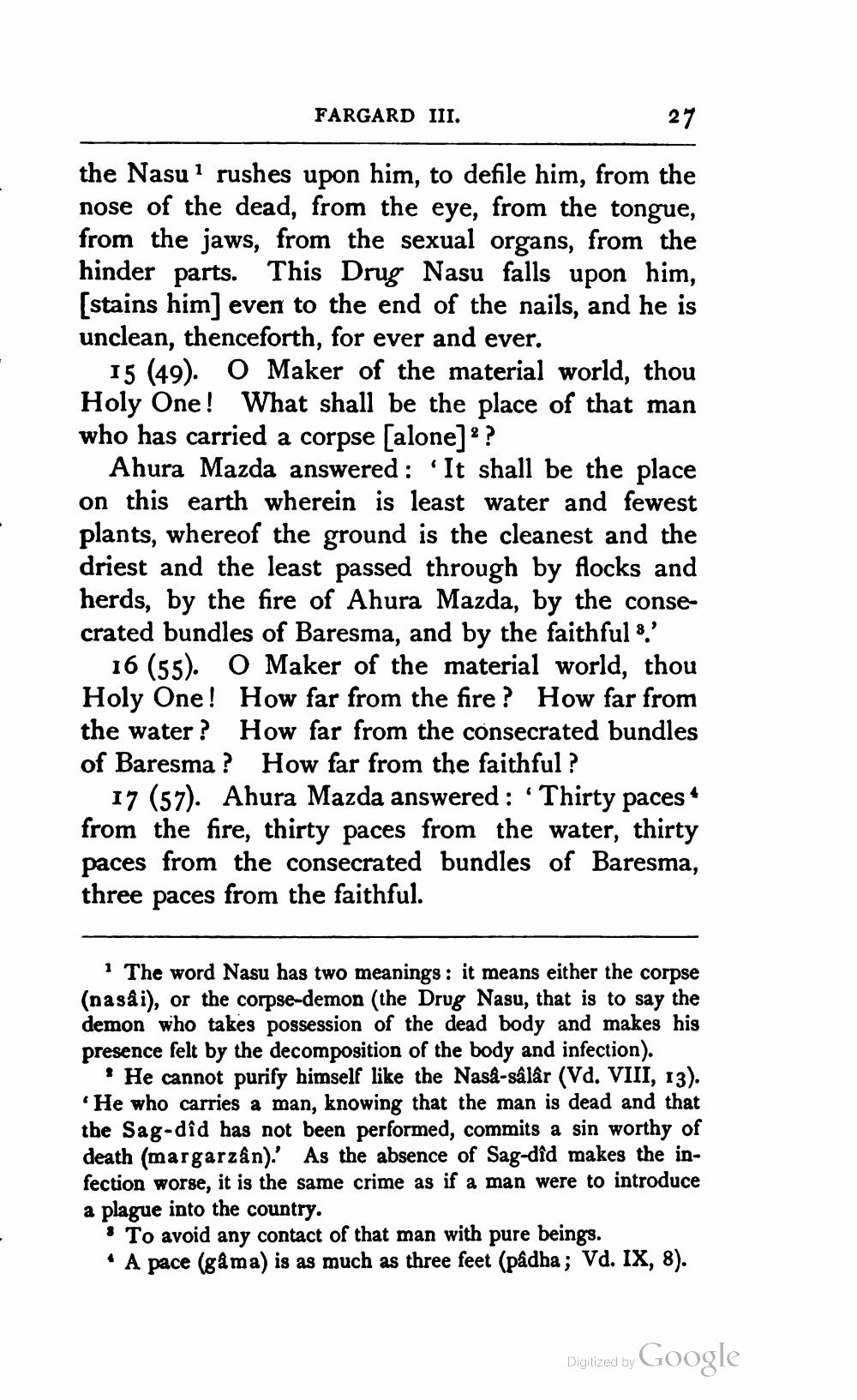________________
27
the Nasu1 rushes upon him, to defile him, from the nose of the dead, from the eye, from the tongue, from the jaws, from the sexual organs, from the hinder parts. This Drug Nasu falls upon him, [stains him] even to the end of the nails, and he is unclean, thenceforth, for ever and ever.
FARGARD III.
15 (49). O Maker of the material world, thou Holy One! What shall be the place of that man who has carried a corpse [alone]??
Ahura Mazda answered: 'It shall be the place on this earth wherein is least water and fewest plants, whereof the ground is the cleanest and the driest and the least passed through by flocks and herds, by the fire of Ahura Mazda, by the consecrated bundles of Baresma, and by the faithful 3.'
16 (55). O Maker of the material world, thou Holy One! How far from the fire? How far from the water? How far from the consecrated bundles of Baresma? How far from the faithful?
6
4
17 (57). Ahura Mazda answered: Thirty paces from the fire, thirty paces from the water, thirty paces from the consecrated bundles of Baresma, three paces from the faithful.
1 The word Nasu has two meanings: it means either the corpse (nasâi), or the corpse-demon (the Drug Nasu, that is to say the demon who takes possession of the dead body and makes his presence felt by the decomposition of the body and infection).
'He cannot purify himself like the Nasâ-sâlâr (Vd. VIII, 13). 'He who carries a man, knowing that the man is dead and that the Sag-dîd has not been performed, commits a sin worthy of death (margarzân). As the absence of Sag-dîd makes the infection worse, it is the same crime as if a man were to introduce a plague into the country.
To avoid any contact of that man with pure beings. A pace (gâma) is as much as three feet (pâdha; Vd. IX, 8).
Digitized by
Google




